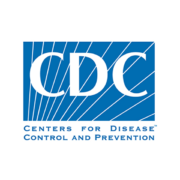Up a Creek Without a Paddle: Health Plans That May Fail Business Owners and Employees

As a business owner, providing adequate healthcare to your employees isn’t just a nice thing to do — it may be a requirement if you have over 50 full-time employees. But what happens when healthcare costs threaten to cripple your business? When traditional group health insurance premiums put an outsized strain on your budget, it can be tempting to look for an option that is more cost-effective. However, many of the alternative options out there tend to hide enormous risks and limitations for both you and your employees.
Let’s discuss the three most popular alternatives to traditional healthcare plans and their inherent drawbacks, so that you can make the best decision for your company and the people who work for you. Of course, when it comes to avoiding common health insurance pitfalls, consulting a broker like Ark Insurance Solutions is always the best way to safeguard yourself against potentially disastrous decisions.
Health Share Plans
Health share plans and healthcare sharing ministries often present themselves as cheaper alternatives to traditional insurance, promising lower monthly payments and free co-pays. However, these plans operate in a regulatory gray area that can leave your employees vulnerable and without coverage. Unlike regulated insurance plans, sharing ministries have no legal obligation to pay on claims. In fact, they operate purely on a voluntary basis. This means that if a health share plan decides not to cover a claim, your employees have no legal recourse.
The limitations don’t stop there. Most sharing ministries impose permanent exclusions or lengthy waiting periods for pre-existing conditions, often denying coverage to employees who need it the most. These plans also frequently refuse to cover preventive care, mental health services, or treatments based on religiously structured morality clauses. Many of them implement strict annual or lifetime caps on coverage, which can leave your employees exposed to catastrophic costs.
“Health care plans look great on paper, but they can be very dangerous because you don’t know what you’re buying and there aren’t always contracts.”
~ Rebecca Yates, CEO of Ark Insurance Solutions
Minimum Essential Coverage (MEC) Plans
MEC plans might barely squeak by the Affordable Care Act’s most basic requirements, but they offer little real protection for your employees. They usually only cover preventive services, leaving employees more or less uninsured for hospitalization, emergency care, prescription drugs, or specialist visits. When employees need actual care that extends beyond basic preventive services, they’re forced to pay full price out of pocket.
These plans don’t just leave your employees in the lurch with barely any coverage, they also provide a sense of false security. Employees often don’t find out how bare-bones their coverage really is until they face a significant medical event. By then, it’s too late. MEC plans can be incredibly enticing for business owners because they comply with certain ACA requirements, but your employees might be better off purchasing their own insurance through the marketplace.
“If an employer is offering coverage and it’s considered affordable, that employee would lose the ability to go to the ACA marketplace and get a policy that’s subsidized,” says Rebecca Yates, CEO of Ark Insurance Solutions. “You can unintentionally make it worse for your employees with these plans.”
If you’re considering a MEC plan, a consultation with Ark Insurance Solutions can provide you with an analysis based on all of your employees, their income, as well as IRS and ACA requirements, giving you the best recommendation for protecting your business and your workforce.
“These plans were designed to meet the absolute minimum that the government asked for… but they often will leave some very large exposures — and they don’t tell people that.”
~ Rebecca Yates, CEO of Ark Insurance Solutions
Fixed Indemnity Insurance
Fixed indemnity insurance seems straightforward, but it’s not. This type of coverage promises to pay a set amount for specific services, regardless of the actual cost. However, this simplistic approach masks some serious shortcomings.
This type of plan can be beneficial as a supplement to an already existing full health insurance plan, but it shouldn’t be used as a standalone option. When medical costs exceed the fixed benefit, employees must pay the difference out of pocket.
These differences can be astronomical, particularly for serious conditions or extended hospitalizations. And what they don’t tell you about fixed indemnity insurance is pretty glaring — your plan won’t negotiate for lower costs, which can ultimately leave you with bankruptcy-inducing medical bills.
For example, let’s consider a scenario where an indemnity plan pays $1,000 per day for hospitalization. In most cases, actual hospital charges can exceed $5,000 per day or more, leaving your employee responsible for a difference of $4,000 per day. And that’s a conservative estimate. A night in the hospital can easily rack up over $100,000 worth in costs, and your employees will end up paying full price for their care. Fixed indemnity plans also often come with a limit of $1 million, which you can easily churn through in just one week of hospital care.
Indemnity insurance can lead to some pretty disastrous outcomes, and they put your employees at risk — even if they never step foot in a hospital. The average costs of common prescription drugs can reach upwards of tens of thousands of dollars a month. Take for instance Skyrizi, a popular medication for psoriasis, arthritis, Crohn’s disease and colitis. It costs around $20,000 per month. A fixed indemnity plan wouldn’t even begin to cover the prescription, and it wouldn’t negotiate the price down, either.
“The downside to fixed indemnity plans is you don’t get any network discounts. The doctor may or may not take that payment in full and there’s a limit.”
~ Rebecca Yates, CEO of Ark Insurance Solutions
The Real Cost to Your Business
While these alternative plans may reduce your immediate business expenses, they often lead to hidden costs that can far outweigh the savings. Employees with inadequate coverage will often delay necessary medical care, leading to increased absenteeism and decreased productivity. The financial stress of medical bills can affect workplace performance and morale, while the discovery of coverage limitations during a medical crisis can severely damage trust between you and your employees.
Most of all, these plans can hamper your ability to attract and retain top talent. In today’s competitive job market, quality health benefits can be a deciding factor for prospective employees. Companies that offer substandard coverage often find themselves at a disadvantage when it comes to recruiting long-term staff.
“Insurance is just math. If it’s cheap, there’s a reason, and you need to know what that reason is,” says Yates. “It’s really important to know what you’re buying, especially if it seems too good to be true.”
A More Sustainable Approach
Instead of risking your employees’ health and financial security with inadequate coverage, consider exploring more sustainable alternatives. By finding a reputable broker, you can protect your business and your employees. “Not all brokers are created equal,” says Yates. “Avoid call centers like the plague. I would recommend someone who has been in the industry a long time and has a local presence in your community.”
Here at Ark Insurance Solutions, we’re committed to providing the best access to care at a cost that makes sense for your business. If you’re considering an alternative like those listed above, know that there are better plans out there, and we’ll work to consider all of your options with a dedicated team of experts that are passionate about what we do.
At the end of the day, the true measure of an employee health benefit plan isn’t its monthly premium, but its ability to protect your employees’ health and financial security while supporting your business goals. While health share plans, MEC plans, and fixed indemnity insurance might offer short-term savings, they often fail to deliver real value to anyone — not your business, and certainly not for your employees.
Remember that healthy, financially secure employees are more productive, more loyal, and more likely to contribute to your company’s long-term success. By investing in meaningful health coverage now, you’re not just providing an employee benefit – you’re making a strategic investment in your company’s future.

















